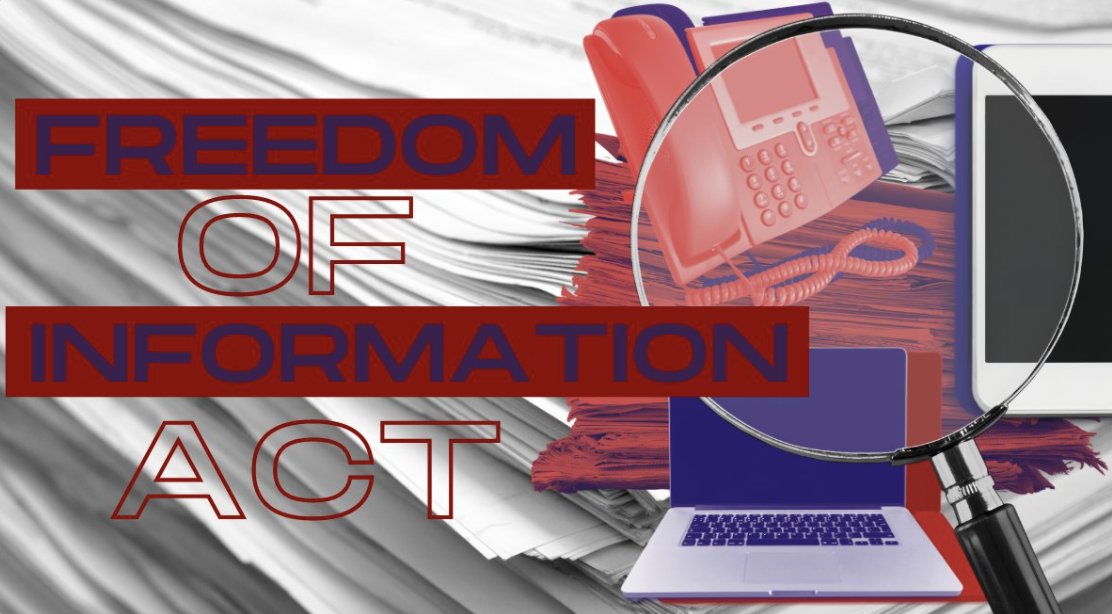
It’s #SunshineWeek, a week that celebrates and promotes access to information and open government nationwide.
This #FOIAFriday, we’re highlighting the power of #FOIA with a thread about its past, present, and future.
This #FOIAFriday, we’re highlighting the power of #FOIA with a thread about its past, present, and future.

President Lyndon B. Johnson signed FOIA into law on July 4, 1966. Records show LBJ personally removed strong language supporting open government from the press statement. He only agreed to sign it after DOJ suggested he include a signing statement.
nsarchive.gwu.edu/briefing-book/…
nsarchive.gwu.edu/briefing-book/…

In his signing statement, LBJ praised the importance of openness to democracy and said the legislation affirmed American principles. But he also wrote that he felt some documents shouldn’t be available to the public.
nsarchive2.gwu.edu//nsa/foia/FOIA…
nsarchive2.gwu.edu//nsa/foia/FOIA…
White House Press Secretary Bill Moyers later said that “LBJ had to be dragged kicking and screaming to the signing.”
Nevertheless, FOIA has become an important part of LBJ’s legacy.
Nevertheless, FOIA has become an important part of LBJ’s legacy.
After the Watergate scandal, President Gerald R. Ford wanted to approve amendments in the Privacy Act of 1974 to strengthen FOIA. Donald Rumsfeld, then-White House Chief of Staff, and his deputy Dick Cheney were worried it could allow leaks. 

Future Supreme Court Justice Antonin Scalia, then Assistant Attorney General for the Office of Legal Counsel, said the bill was unconstitutional and even asked the CIA to lobby one White House staffer against it. 

So Ford vetoed it but Congress overrode his veto, creating the core of FOIA that’s still in place today.
FOIA has been amended many times over the decades, but let’s fast forward to the most recent FOIA update: the FOIA Improvement Act of 2016.
FOIA has been amended many times over the decades, but let’s fast forward to the most recent FOIA update: the FOIA Improvement Act of 2016.

The bill strengthened the FOIA ombuds, put a time limit on the use of the deliberative process exemption, mandated more proactive openness, wrote into law a specific presumption of openness, and more.
There are also significant issues with enforcing the reforms. FOIA ombuds offices have little actual authority to ensure agencies adhere to FOIA laws. Often, this results in arduous delays.
FOIA also requires “prompt” production of records, but many agencies continue to underfund their FOIA operations and as a result develop significant backlogs that delay responses. 

The lack of timely responses undermines FOIA’s ability to inform citizens about what the government is up to when that information is still pertinent rather than stale. 

#SunshineWeek is an important opportunity to celebrate the principle that the government should be open and that the public has a right to know what our leaders are doing on our behalf.
In case you missed it and want to learn more about the Freedom of Information Act, check out our helpful guide here:
https://twitter.com/weareoversight/status/1503408510360592394?s=20&t=M2-Ob9IJM0QKdoN76C9ADQ
• • •
Missing some Tweet in this thread? You can try to
force a refresh





